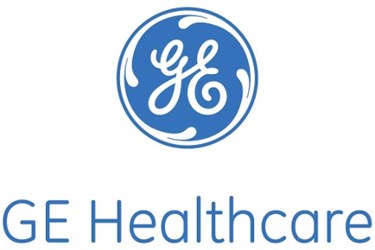GE Healthcare Launches Cloud-Based Radiology Service And Apps
By Jof Enriquez,
Follow me on Twitter @jofenriq

GE Healthcare unveiled a cloud-based radiology imaging service with four accompanying apps at the 101st annual Radiological Society of North America (RSNA) meeting in Chicago. The Health Cloud platform allows radiologists and care providers to remotely share medical images, to collaborate on clinical decision making, and to reduce healthcare costs.
"Our ultimate goal is to help improve patient care and drive superior clinical, financial and operational outcomes alongside healthcare providers," said Jeff Immelt, chairman and CEO of GE, in a statement. "As the digital industrial leader, we are betting big on the GE Health Cloud. By connecting clinicians with the insights needed, when and where they need them, clinicians can take action to improve healthcare outcomes and delivery around the globe."
According to GE, Health Cloud is the first industry specific application of its Predix cloud technology that is capable of processing and analyzing huge amounts of medical images from more than 500,000 GE imaging machines already installed at healthcare facilities. Health Cloud is designed to work with non-GE devices, although interoperability with products made by GE's industry rivals could make it difficult.
"Healthcare devices are generating enormous amounts of data, and that data is expected to increase 50-fold by 2024," said John Flannery, president and CEO for GE Healthcare, in the release. "The GE Health Cloud can help unlock the value of this data, quickly and seamlessly for better patient care. The GE Health Cloud will help clinicians turn data into insights, and insights into tangible actions for decision-makers to drive better outcomes."
For clinicians to utilize the new cloud-based service, GE introduced a pioneer batch of four Centricity-branded apps that will run on Health Cloud. One app will handle 3-D image post-processing; another app is for collaborative care planning; there is an app for image and report sharing; and an app for tracking longitudinal patient imaging data. These apps will be delivered on a subscription basis, giving hospitals greater flexibility in managing costs. GE also says it will include a Software Development Toolkit (SDK) for third-party developers and independent software vendors (ISVs) interested in developing their own apps in the Health Cloud ecosystem.
GE claims that its new cloud-based service is compliant with recognized interoperability standards, including FHIR, HL7 and DICOM, as well as expected full attestations for HIPAA privacy compliance, and security compliance, including HITECH and HITRUST, and SOC2 certification.
Cloud-based services can be susceptible to downtimes and cybersecurity breaches, issues that can have fatal consequences in the healthcare field. Jan De Witte, president and CEO of GE Healthcare IT, claims in a Fast Company report that he expects the reliability of Health Cloud to be at least 99.9 percent, which is far better than hospitals relying on their local IT resources can claim to achieve.
"The argument to the CEO of a hospital is, do you really think that the server that's running in your basement has a better performance, has a better uptime, and has better cybersecurity than the cloud services you can buy from big, capable cloud operators?," De Witte told Fast Company.
As an example of how providers and patients can benefit from a cloud-based service, he touts that Health Cloud can make 3-D animation of blood flow in a constricted artery in five minutes what a hospital's desktop computer can do in four to five hours. "You can let loose two or three algorithms on the same data set, where before you could only do one," says De Witte, according to the report.
